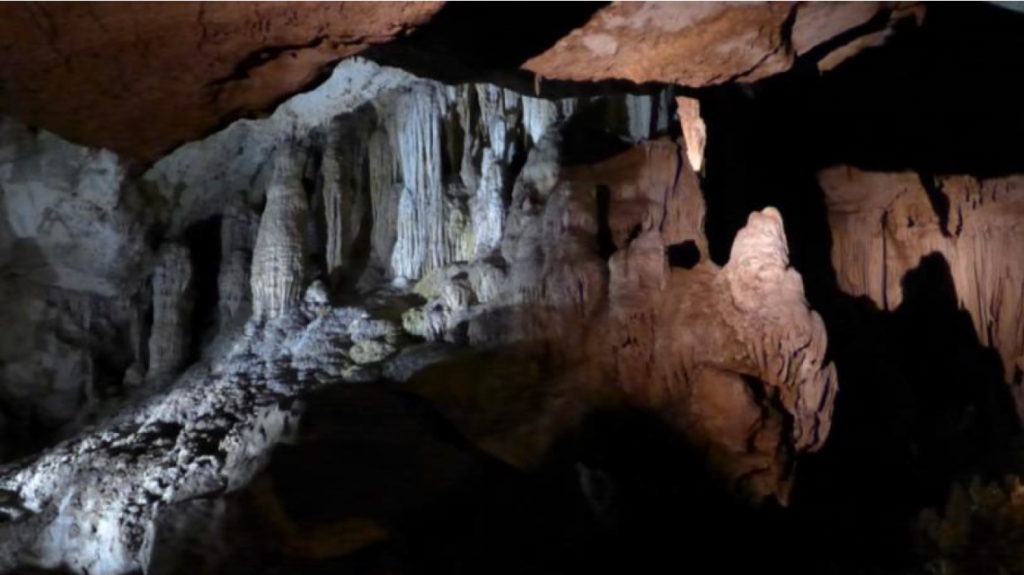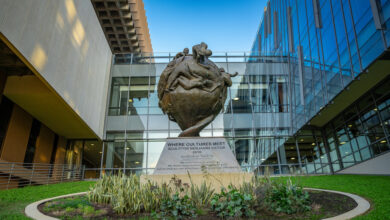
A new study co-authored by CSUDH Professor of Earth Science Ashish Sinha reveals that catastrophic droughts–unlike anything observed in the last 150 years–have regularly occurred in the Indian subcontinent throughout the last 1,000 years. The new data indicate that the region’s current rainfall predictability could give way to decades-long drought. If this occurs before preventive measures are taken, it poses an enormous threat to human life.
Sinha worked alongside an international team of researchers to develop the new rainfall record, published in the Proceedings of the National Academy of Sciences. The team analyzed oxygen isotopes in stalagmites from the Mawmluh cave, near the town of Cherrapunji in the state of Meghalaya–one of the wettest locations in the world. The stalagmites work similarly to tree rings, recording the region’s rainfall history within their geochemistry.
Analysis of the stalagmites revealed links between multi-year droughts and significant geopolitical changes in India, including records of crop failure, mass death, and societal collapse over the past millennium–particularly in the 16th and 18th centuries.
“Our study shows that protracted droughts, lasting at least 3 years or longer, tend to occur in clusters within decades-long intervals of weaker monsoon rainfall,” Sinha says.
“These intervals are separated by centuries-long periods of relatively stable climatic conditions–much like the conditions during the last 150 years where such protracted droughts are essentially absent.”
Sinha and the research team warned that the lack of protracted droughts over the last 150 years may be leading to a false sense of security and ill-informed water resource infrastructure policies in India–soon to be the most populous country on earth.
Gayatri Kathayat, another lead author of the study, says that such droughts could easily overwhelm modern societies “unless a longer-term and holistic understanding of monsoon variability is incorporated into the region’s drought management and mitigation planning.”
To learn more about this study, read Sinha’s and Kathayat’s piece in The Conversation.








